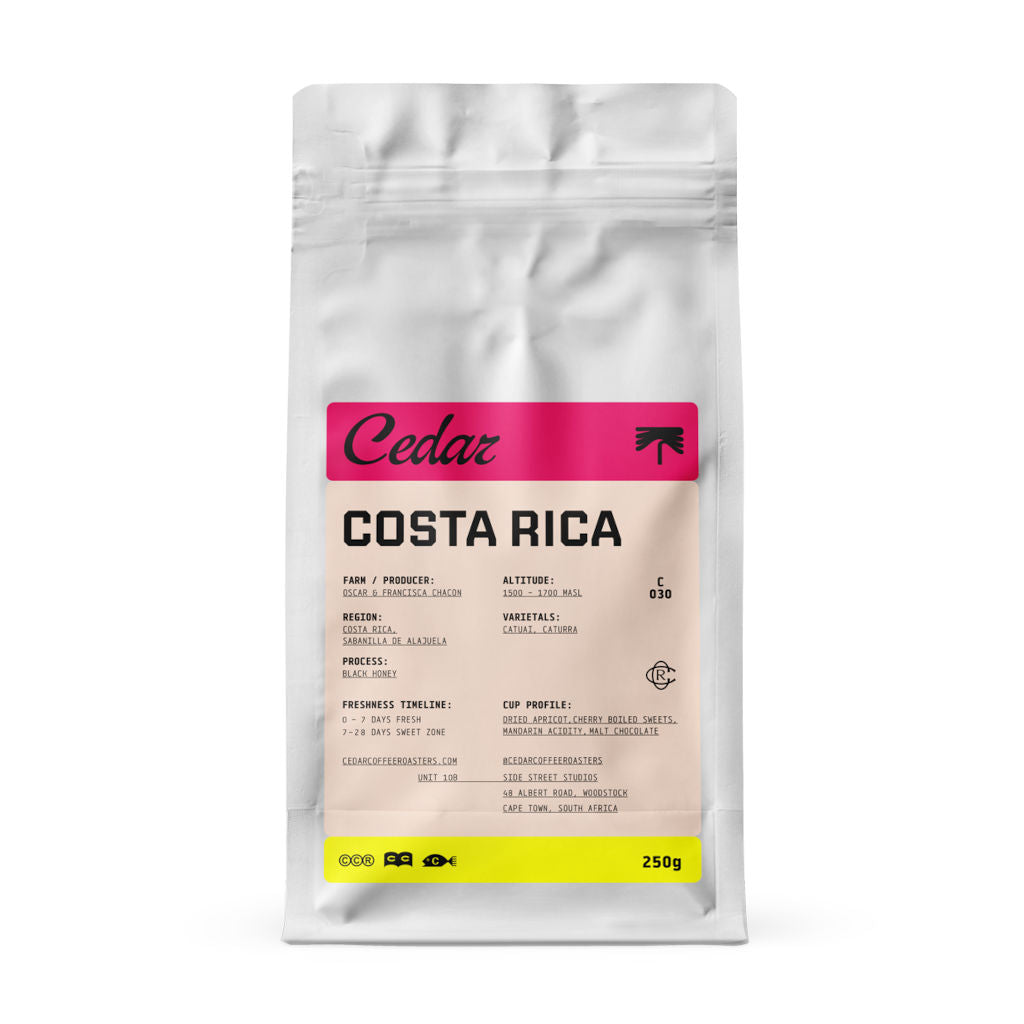
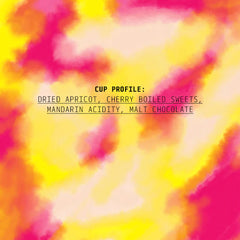
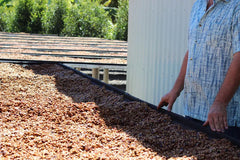
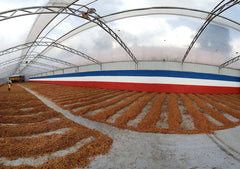
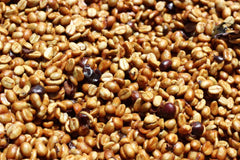
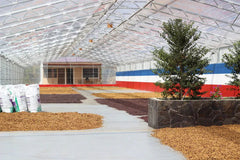
We receive fresh deliveries of these coffee beans twice per week. Please allow up to 3-4 working days after you order for dispatch in case we need to wait for the next delivery.
Costa Rica is one of those coffee-producing countries where the scale of the reputation far outstrips the scale of the nation, or even the production. This small Central American state is the 15th largest exporter of coffee, but many consider it to be one of the very best producers of specialty coffee. This may be because of the long history of coffee cultivation, spanning at least two centuries, and the importance of the crop to the domestic economy.
Costa Rica isn't only known for quality in the specialty space either. In fact, many contemporary specialty coffee drinkers know Costa Rica because of the readiness of its farmers to experiment with processing methods, particularly of the honey variety - hybrids between the traditional washed and natural processes.
This coffee is just such a lot, having undergone a 'black honey' process, most simply understood as a honey process that is more towards the natural end of the spectrum than the washed end, because of the amount of contact allowed with the fruit in the drying process.
Finca Las Lajas, the farm where this lot was grown, is a particularly famous example of pioneering production and processing. You'll find coffees from this family-run farm on specialty coffee menus around the world. We're thrilled that our friends at Cedar have chosen this as their first ever Costa Rican lot.
Phaedon's tasting notes
I have some fond, quite old, memories of tasting a Las Lajas lot on a cupping table in a roastery in the Cape Town CBD. This was early in my coffee journey, and that particular roasting location no longer exists, but the excitement I felt is still very much with me. I was very happy to see the Las Lajas name in the new release email I received from my friends at Cedar. So far, I have not been disappointed.
In the cup, this coffee certainly lends support to the Costa Rican specialty coffee reputation. It manages to be both easy to enjoy and exciting in its flavours. It has a perfect balance of body, acidity and mouthfeel. It has something for everyone, really.
It is definitely fruity, but in a fairly restrained way. The specific flavours seem to be a medley of stone fruit, from cherry to peach, but there's also herbal tea quality of sorts, a subtle honey sweetness, some citric acidity, maybe even a hint of rooibos to my palate. Sometimes I was actually reminded of drinking a cascara tea while I was trying this coffee.
It seems to fair beautifully in both filtered percolation methods and immersion brews. I'd highly recommend you try it.
Cedar's notes
This coffee was a standout on the cupping table, we got flashes of pink which is weird to explain but it does give an expression of vibrancy. On filter we picked up notes of, plum, cherry boiled sweets, and a mandarin acidity. A lot going on but still quite a clean and balanced cup. Espresso hits you with notes of dried apricot. The milk drink however changes the drink completely as it transforms from a fruity filter to a malt chocolate drink.
- Cup profile: Dried Apricot, cherry boiled sweets, mandarin acidity, malt orange
Coffee details
A new coffee on the list and a new country to explore at Cedar. This is our first release of a Costa Rican coffee at Cedar. This country is renowned for its honey processing methods especially Las Lajas washing station.
Oscar and Francisca decided a long time ago to change their farming practices and move away from using pesticides to become a certified organic farm. They have made a compost-like fertilizer from the pulp of the coffee processing and other waste from nearby mills.
The process method is quite interesting as there are different shades of honey process and each country, heck even farms use different honey processing practices. This one in particular is a black honey process; what happens is the cherries are pulped and then left to dry on African raised beds for 15 - 20 days. The coffee is left untouched for two days, thereafter the coffee is agitated by periodic movements 4 times a day, this is done to decrease the coffee's humidity
- Region: Costa Rica, Sabanilla de Alajuela
- Farm/Producer: Oscar and Francisca Chacon
-
Process: Black Honey
-
Altitude: 1500 - 1700 masl
- Variety: Catuai, Caturra
You can find more coffees from Cedar here.
